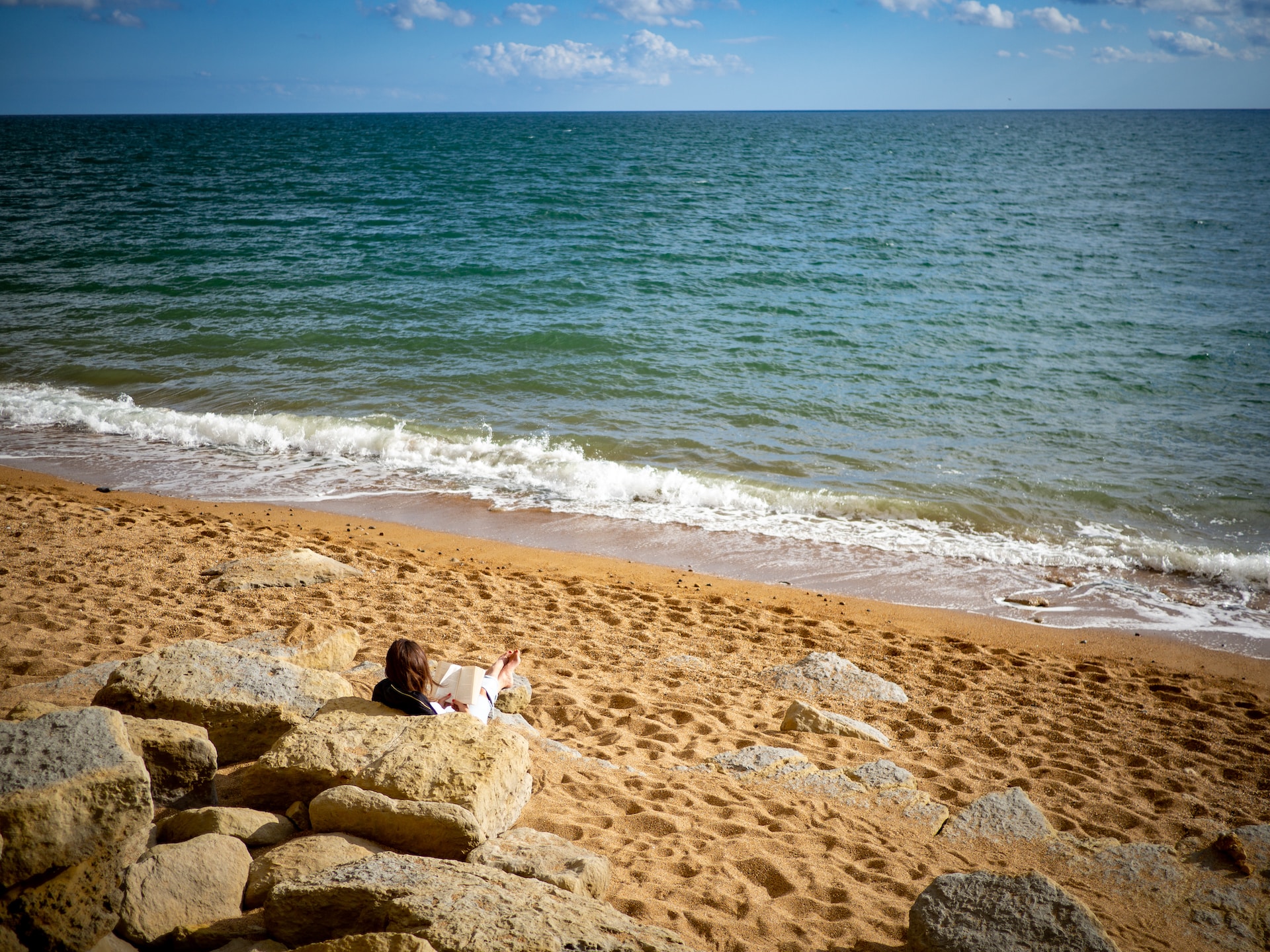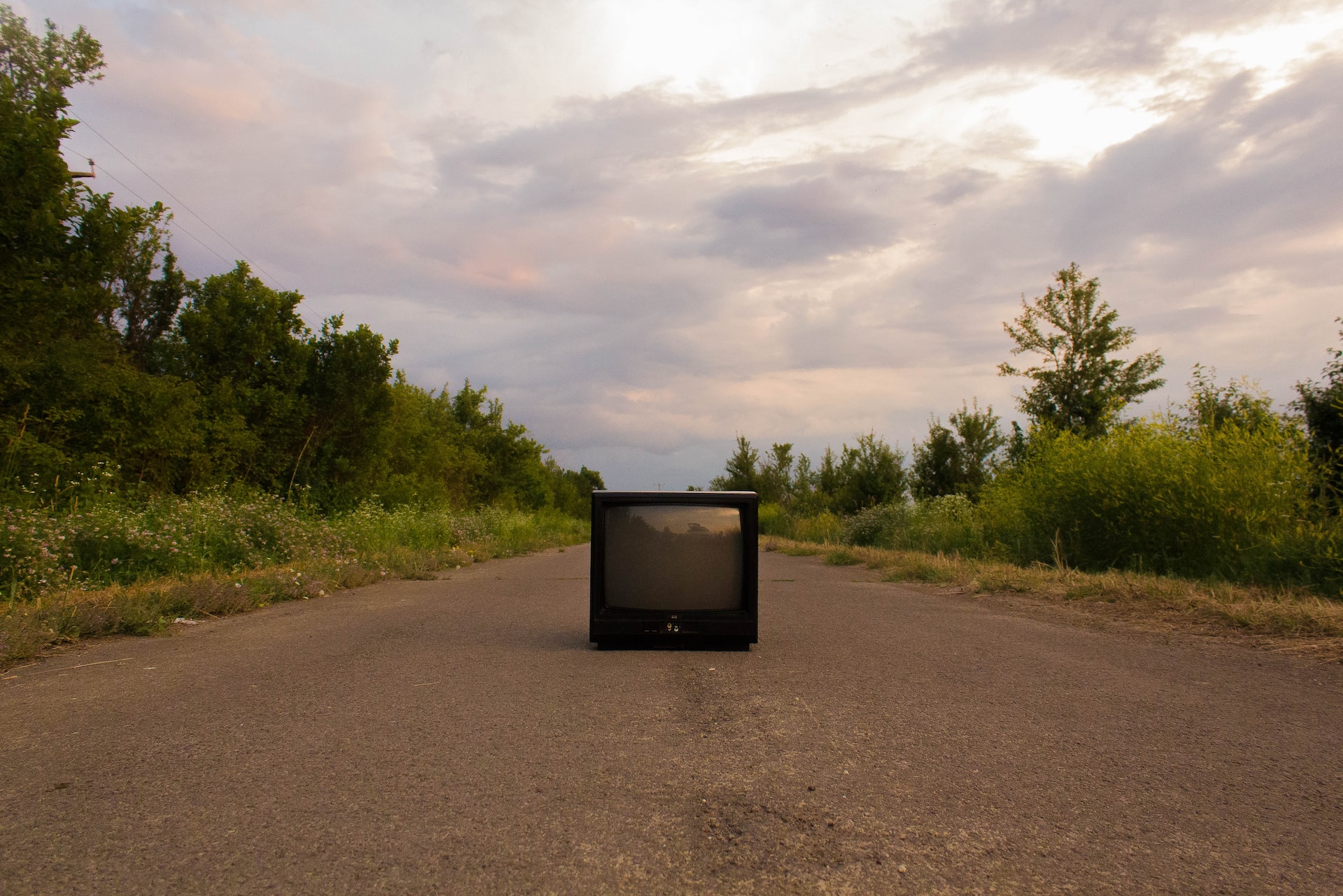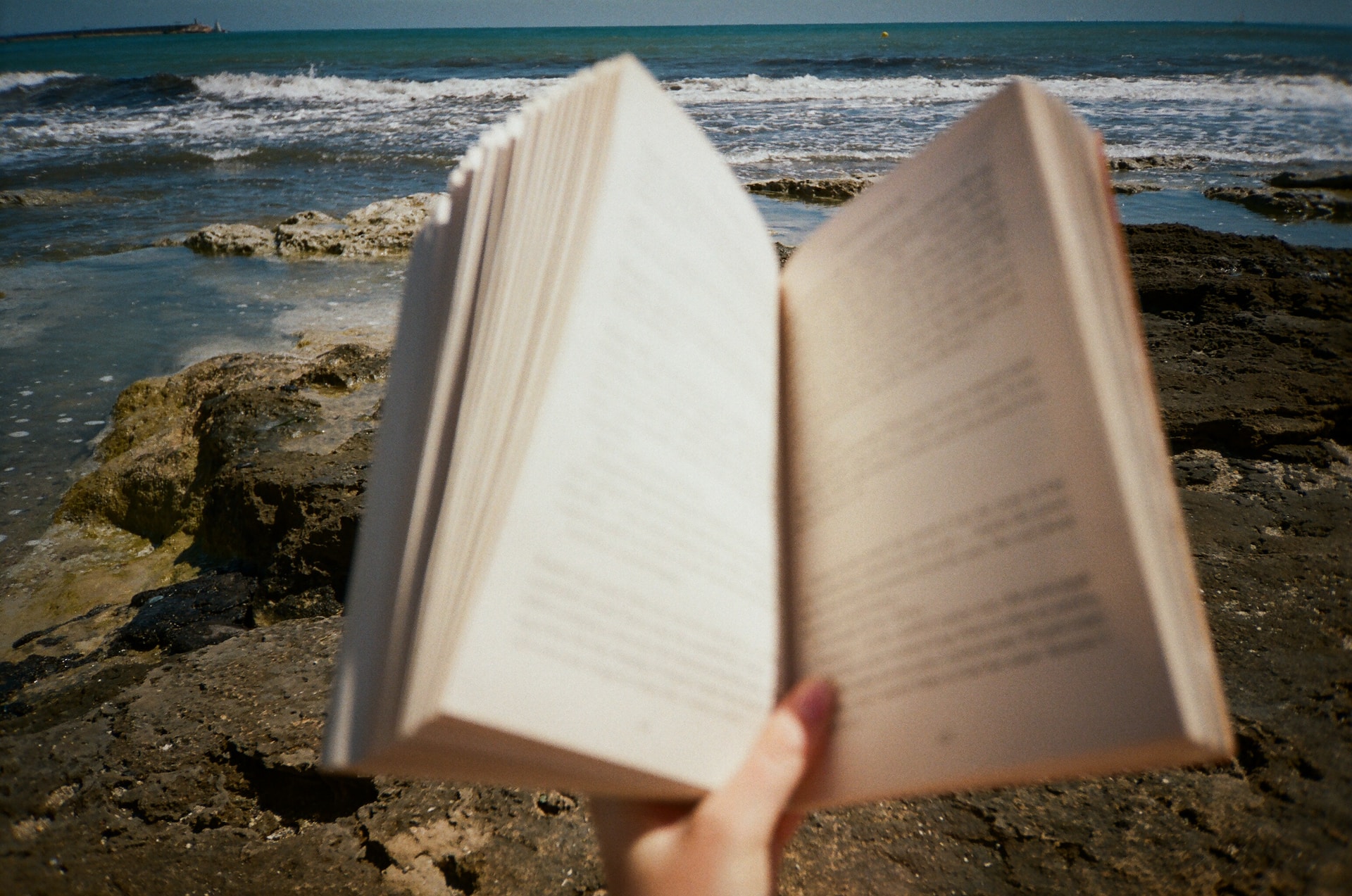Guided by a resolutely optimistic spirit, we believe in the power of collective action to preserve our planet. This selection of inspiring content is an invitation to be informed without constraint and to commit to the climate, because we are convinced that every step counts in building a sustainable and promising future for our world. Definitely captivating, without a hint of boredom!

Podcasts
La Terre dans ta face, “To put the Earth back where it belongs, in the news and in your face!” Kenza Benrhamous’s Earth in Crisis explores issues such as civil disobedience, eco-anxiety, heatwaves in working-class neighborhoods and the environmental impact of fast fashion. Each week, the journalist, accompanied by experts and citizens such as Maxime Roul, Justine Ripoll and Eddy Klemenczak, discusses climate, ecological and social issues in an educational way. The Instagram account of Alvéole, initiator of the podcast, features the guests’ literary recommendations.”
In 1972, the Meadows report marked a turning point by assessing for the first time the impact of human activities on the planet. 50 years on, journalist Audrey Boehly revisits it, investigating the planetary limits that have been exceeded and the solutions. In 12 episodes of 40 minutes each, ‘Last Limits’ interviews experts, including Dennis Meadows himself, to take stock of the current situation and envision a greener world. Topics covered include agriculture, biodiversity, climate, energy, geopolitics, minerals, sand and water. A book version of the podcast has also been available since spring.
WeNow, a company focused on sustainable mobility, is behind the ‘On the road’ podcast. Each week, co-founder Valérie Mas interviews guests on topics related to the climate transition, offering ideas for action. Despite its focus on reducing the carbon footprint of corporate car fleets, the podcast covers a variety of perspectives. In over a hundred episodes, Valérie Mas talks to CSR directors, entrepreneurs, authors and others, offering different perspectives on the transition. Short, four-minute ‘podsnacks’ are also available.”
Should we eat less fish? Will we soon be able to fly electric? What will France look like in 2050? The ‘Green Letter Club’ podcast offers over a hundred surprising episodes. Journalist Maxime Thuilliez points out that climate change impacts everything from weather and fashion to agriculture and transport. Every week, he welcomes researchers, NGO leaders and business leaders for hour-long discussions. Experts such as economist Thimothée Parrique and glaciologist Heidi Sevestre share their knowledge.
This podcast is produced by Novethic media, created with anthropologist Fanny Parise (Madame l’anthropologue). It explores the impact of climate change on our lives and our ability to imagine new perspectives in response. Subjects such as rethinking the car as a means of collective travel, a new social contract at work, the transformation of the suburban society and leisure are discussed. Immerse yourself in these inspiring tales of a changing world that challenge us to rethink our future.
A podcast offering essential ethical reflection in times of social, ecological and health crises. Each month, Delphine Saltel examines our contradictions and suggests possible solutions. Combining personal introspection, daily anecdotes, reports and discussions with experts and activists, this podcast aims to raise awareness, inspire and offer a glimmer of hope for a different future. A book inspired by the podcast was published this year.
Emanating from the initiatives of The Shift Project think tank, led by Matthieu Auzanneau and chaired by Jean-Marc Jancovici, this podcast aims to stimulate dialogue and action in favor of a decarbonized economy. It is based on accurate and accessible data from IPCC reports and resources provided by The Shift Project.
France Inter’s not-to-be-missed program, presented by Mathieu Vidard, tackles a wide range of subjects including nature, climate, pollution, ideas and initiatives, offering a comprehensive perspective on current events around the world, for the present and the future. As a bonus, you’ll find the daily ‘Solutions’ newspaper.
Lucas Scaltritti, journalist at ‘Le Monde’, shares his experience of reducing his carbon footprint to 2 tons per year in six months, in line with the Paris Agreement’s goal of limiting global warming to less than 2 degrees by the end of the century. Currently, the average French person emits 9.5 tonnes of CO2. This story details the transition to a more sober future.
Lucas Scaltritti, journalist at ‘Le Monde’, shares his experience of reducing his carbon footprint to 2 tons per year in six months, in line with the Paris Agreement’s goal of limiting global warming to less than 2 degrees by the end of the century. Currently, the average French person emits 9.5 tonnes of CO2. This story details the transition to a more sober future.
The question is not ‘should we change the world’ – that goes without saying. The real difficulty lies in how to do it. Our individual actions count, but the strategic choices of governments and the actions of companies are essential. So good and l’ADN have joined forces to present this podcast hosted by Alexandre Kouchner, editor-in-chief of l’ADN le Shift. This program offers a frank conversation between companies and activists, tackling specific topics to facilitate economic transition.

The books
Camilles Étienne published his first book at the age of 24. Having grown up in an area threatened by climate change, she tackles the idea that our powerlessness is a constructed concept, serving those in power. In her essay, she deciphers the myths hindering our action, such as eco-anxiety and the generational divide. It promotes a liberating ecology, based on collective democratic power, rejecting inertia and emphasizing the potential for uprising.
Opposed to high-tech, the concept of low-tech designates a movement aiming to use technology as one of the tools for recreating a fairer, more viable and more desirable society. The ambiguities and place of market and authoritarian logics are questioned.
This comic is the best-selling book in France in 2022. The collaboration between a major comic book artist and a recognized specialist in energy and climate issues gave birth to this project, which is both an obvious and necessary way of tackling subjects of general interest. This intelligent, clear and humorous book presents the profound changes underway on our planet and their consequences. Jean-Marc Jancovici puts energy and climate change at the heart of his thinking, addressing economic, ecological and social issues. This enlightened account invites reflection on sometimes controversial subjects, such as the energy transition. As in his previous books, Christophe Blain positions himself as an observer, offering an essential insight into our world in 120 pages.
A liberating guide to adopting a sober, autonomous lifestyle that meets the challenges of the future. At a time of energy shortages, supply disruptions and rising inflation, our comfort zone is being put to the test in a tense economic, social and geopolitical environment. In the face of these changes, the importance of sobriety has never been clearer. This sobriety, often misunderstood, is not a temporary punishment, but rather a way of getting through the difficulties of season after season.
An essential guide for anyone wishing to make a daily commitment to a healthier world. A new, updated edition of the practical handbook for simple, accessible everyday ecology! From consumption to food, hygiene, leisure, school and work, this guide encourages responsible individual action in favor of the collective.
We are currently living through a period of ambiguous transition, announced but not yet begun, which plunges us into an uncomfortable in-between moment in history. Amid this blurring, an apparent generational divide emerges: on the one hand, boomers downplay or even deny the seriousness of the climate crisis, while young environmental activists are often criticized for their impatience or radicalism. In this short but hard-hitting essay, Léa Falco, an activist for the “climate generation”, shows how this artificial divide between generations maintains a harmful status quo, while crucial questions remain: how can we bring about a successful ecological transformation? Where and with whom? It offers a perspective for understanding this transformation, as well as strategies to adopt as a citizen, whether in the professional or political sphere. It’s time to unite to “do ecology together” and build a sustainable society.
The ultra-rich are often criticized for their energy-hungry lifestyles and carbon-intensive escapism, from Jeff Bezos’ space tourism to Bernard Arnault’s private jet travel. Symbolic actions, reports and articles denounce their escape. However, these economic elites are not just passive observers, but influential players in the global climate debate. They vigorously defend green capitalism, a political project that safeguards their interests in a world in crisis. This book takes a behind-the-scenes look at the networks of players (NGOs, foundations, think-tanks, lobbyists) that have shaped green capitalism over the past two decades. It explores how these elites have imposed this approach as the only “realistic” solution to the current climate crisis, going beyond the already familiar rhetoric.
Humanity has a hidden asset: its brain. Once a precious ally, it could now be the source of our problems. There’s a major flaw in this prodigious organ: the neurons that regulate our survival never reach saturation and constantly demand more food, sex and power. Despite our awareness of this risk, why do we remain inactive? Can we solve this problem and regain control of our destiny? Yes, by taking a close look at the mechanism that drives our brains to always want more.
After the success of “Paresse pour tous”, Hadrien Klent proposes a new utopia. In his previous book, he made people dream by proposing a presidential candidate advocating a 3-hour working day. Now, this idea has become a reality thanks to economist Émilien Long, who was elected president. But in a transformed society, obstacles remain: powerful lobbies, reactionaries, nostalgists of the past and demagogic politicians seek to undermine this innovative system. Can you really change society’s priorities by even questioning your own position as president?
“Based on the show and album Résistances poétiques composed with my accomplice Sébastien Hoog, we invited artists we love to add their strengths, their fulgurances, to our work. In these pages, we have brought together poems and contemporary works that, each in their own way, attempt to shake up the world.” Cyril Dion, writer, director, poet and environmental activist.
This edgy economic essay reveals that economic growth, far from being the solution to the current crises, is their main cause. Author Timothée Parrique deconstructs the contemporary mythology of the pursuit of growth. He shows that excessive accumulation slows down social progress and intensifies ecological crises. The book explores the path of degrowth as a transition to a post-growth economy, demonstrating that it is possible to prosper without growth by reorganizing our economic structures.
This book is the wardrobe equivalent of Silent Spring. It’s a shocking revelation that reveals the true cost of the toxic, largely unregulated chemicals found in most of today’s clothing. Award-winning journalist Alden Wicker reveals a hidden story in broad daylight: the unregulated toxic chemicals that are probably in your wardrobe right now, how they’re harming you and what you can do about it.
In this seminal book, former Unilever CEO Paul Polman and sustainable business specialist Andrew Winston challenge fifty years of corporate dogma. To thrive today and tomorrow, they argue, companies must become “net positive” by giving more to the world than they take. “Net Positive” sets out the principles and practices that will bring the scale of change and transformation the world desperately needs.

Series – Films – Documentaries
Imagine a universe where women possess a unique power: the ability to deliver electric shocks from their collarbones to their fingers. These sometimes lethal discharges could upset current power dynamics. Think of a world where women are more powerful than men. What would be the consequences? Could they abuse it? That’s the theme of this series, inspired by Naomi Aldermann’s remarkable book “The Power”. From Nigeria to Iran to the USA, this feminist revolution promises to provoke strong reactions from masculinists and critics of the “anti-woke” movement.
The calm of a peaceful island is shattered when twenty armed activists suddenly arrive, forcing the residents to take refuge in the village school. At their head was Alpha, who had planned everything, except for the fact that the shuttle linking Penhic to the mainland eluded them, allowing five passengers to hide out on the island.
Adapted from Hugh Howey’s 2012 science-fiction novel, Silo plunges us into a dystopian future where humanity has had to take refuge underground due to the toxicity of the atmosphere on the surface. The 144-storey silo is a mystery, and anyone who tries to uncover it will be punished. The story follows Juliette Nichols, played by Rebecca Ferguson (Dune), who becomes sheriff of the silo, questioning the death of her love and the foundations of this elite-controlled society. This breathtaking thriller explores an established order at the service of this oppressive governance.
This French series, available on Canal+, unfolds over two seasons of sixteen episodes. In the first season, Vincent Ogier, a student at the École Nationale Supérieure des Mines in Paris, is sent to French Guiana to spend ten months prospecting for gold in the forest with his supervisor. However, things don’t go as planned and Vincent finds himself involved in the dangerous world of illegal gold panning, discovering a harsh reality.
In this series, nature rebels with mysterious events across the globe, while a threat emanating from the ocean depths endangers many lives. This triggers a confrontation between humanity and an unknown collective intelligence. This adaptation of Frank Schätzing’s bestseller is the result of an international collaboration, including the participation of SRF.
This Franco-Belgian dramatic thriller is adapted from the comic strip Algues vertes, l’histoire interdite, by Inès Léraud and Pierre Van Hove, published in 2019. Intrigued by a series of disturbing deaths, journalist Inès moves to Brittany to investigate the phenomenon, which she attributes to green algae. She began her research on the spot, collecting revealing but disturbing testimonies. Initially suspicious, Inès is now convinced that the proliferation of these toxic plants poses a serious risk to public health. However, she realizes the dangers she faces in revealing the truth despite the silence that surrounds this case.
No, there’s no meteorite on its way to Earth, at least not at the moment. However, the Netflix-produced fiction film, which has become a phenomenon, succeeds in eliciting laughter (and tears) by pointing the finger at collective inaction through this pungent satire. Another dystopian dimension addresses the fact that technology seems destined to save only the powerful. This work could potentially teach us to start opening our eyes now.
Through the eyes of an extraterrestrial charged with “disconnecting humans” from their frenetic daily rhythm, the film explores the absurdities of today’s world. One memorable scene in the film deserves special mention: the character played by Vincent Lindon finds himself in an altercation with an enraged and rude Parisian motorist… who, once “disconnected”, ends up hugging a tree. Coline Serreau’s 1996 fantasy fable is still relevant today.
Is your dressing room overflowing and you’re looking for a responsible way to make the most of it? Repairing, recycling, reusing, upcycling… There’s always a way to create trendy looks without necessarily buying new clothes. Whether you’re a fashion enthusiast or not, Mission Refashion shows you how to embrace the modernity of responsible fashion. In the first episode, we follow Johanna, a 25-year-old Parisian thrift store enthusiast. Attracted by the hidden treasures of second-hand stores, she buys impulsively, without trying, only to end up not wearing her finds. Experts will teach her how to hunt with discernment, manage her purchases better and transform what she already owns.
Home is a documentary released in 2009, written and directed by Yann Arthus-Bertrand and produced by Luc Besson. In the 200,000 years of its existence, man has upset the balance on which the Earth has lived for 4 billion years. Global warming, resource depletion, species extinction: man has endangered his own home. But it’s too late to be pessimistic: humanity has barely ten years left to reverse the trend, become aware of its disproportionate exploitation of the Earth’s riches, and change its consumption patterns.
Demain (2016) and Après-demain (2018), Demain Genève (2018), by Cyril Dion and Mélanie Laurent (for the first), and Laure Noualhat (for the second), Grégory Chollet and Elisabete Fernandes (for the third). The first two documentaries take us on a tour of France’s exciting solutions, two years apart, with the ecological emergency in the background. Strongly inspired by the first documentary, “Demain Genève” was the brainchild of a group of young people fascinated by the film DEMAIN, who wondered whether such solutions existed close to home.

